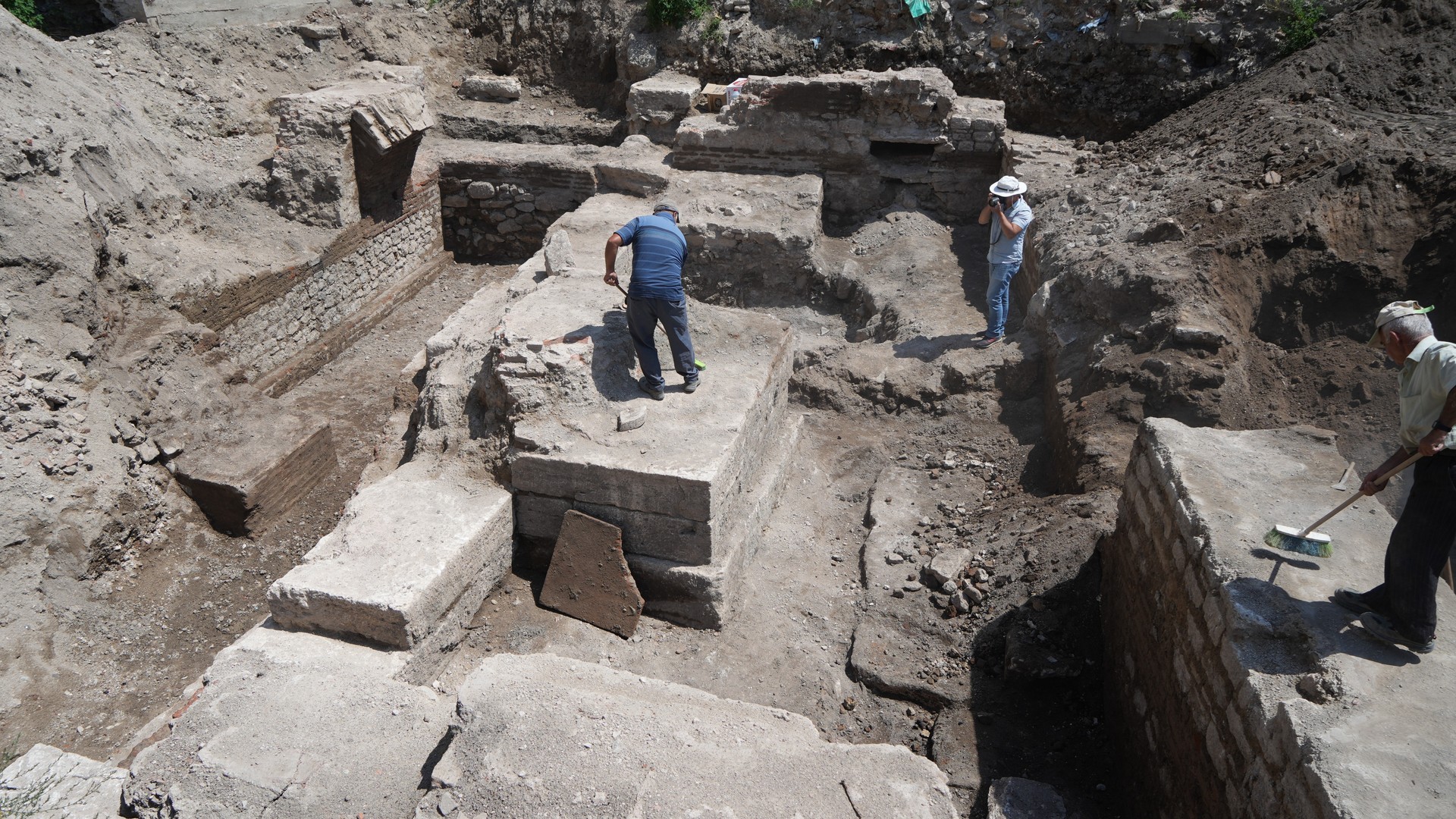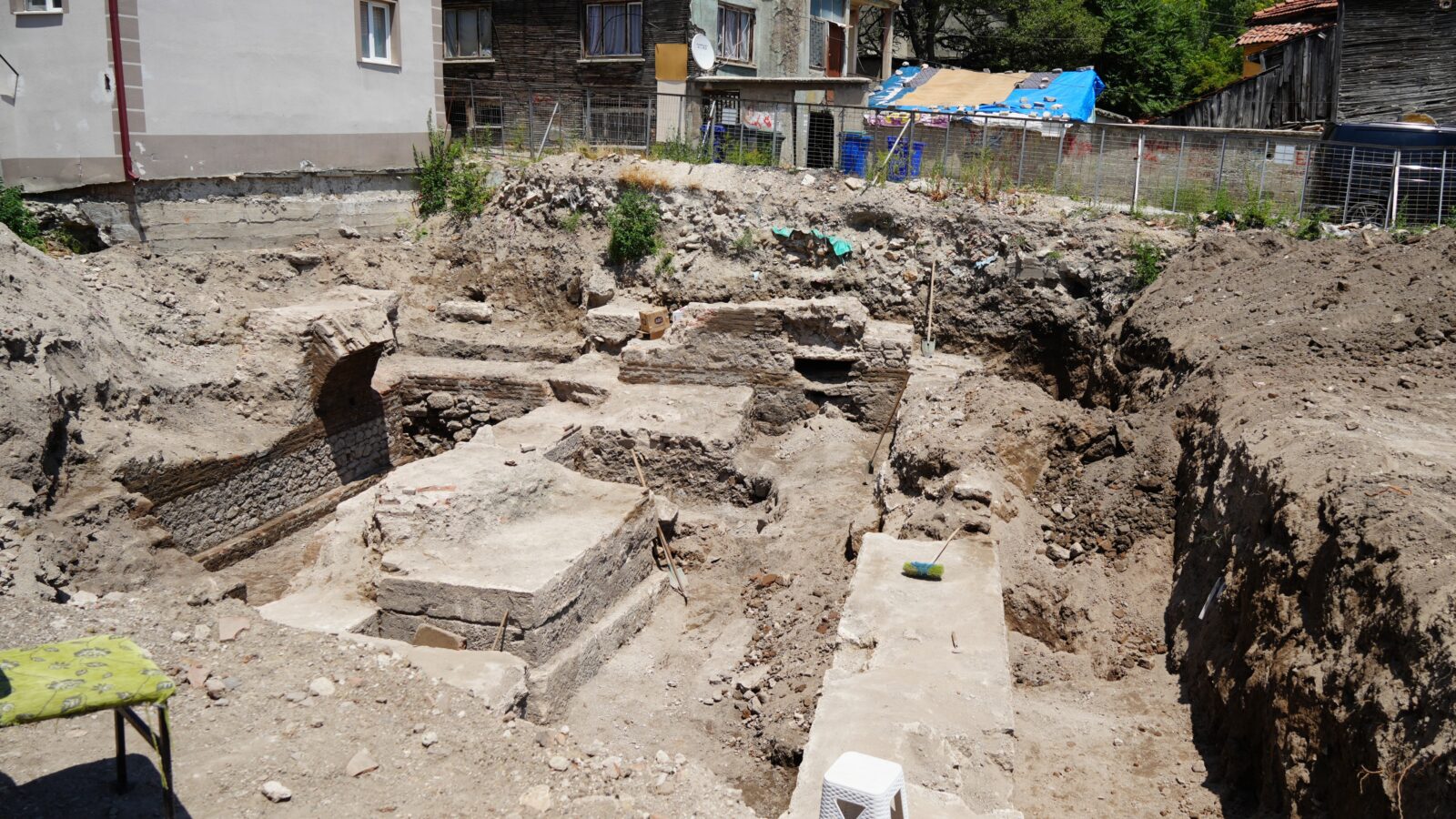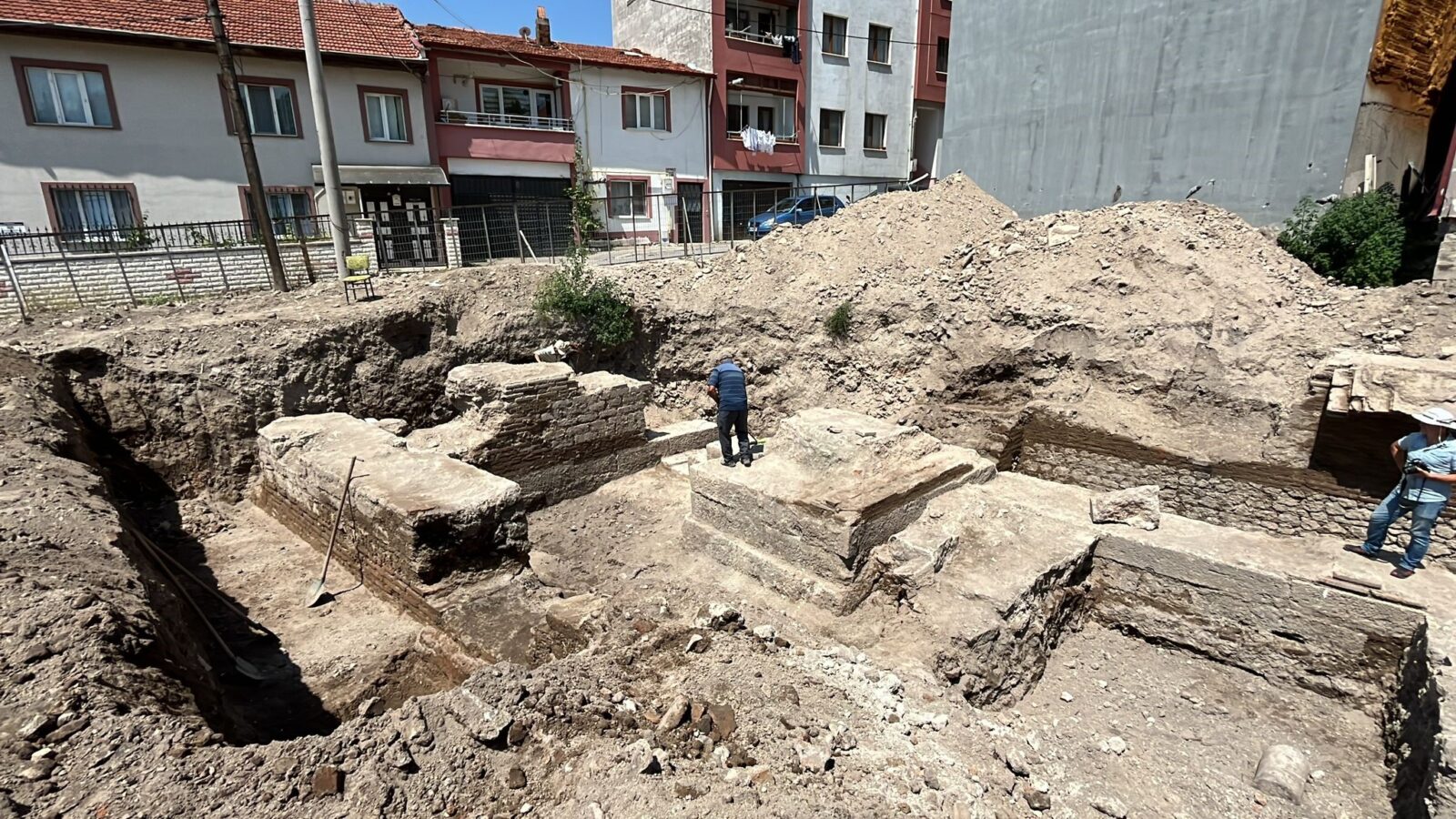
A construction project in Bolu’s Akpinar neighborhood has led to the unexpected discovery of ancient Roman bathhouse ruins, prompting archaeological excavations in the area.
The site, classified as a third-degree archaeological site, was being prepared for the construction of 91-bedroom apartments on Mumcuoglu Street when the historic remains were unearthed.
The construction company notified the Bolu Museum Directorate, which immediately dispatched personnel to investigate the site.

Archaeologists halted the construction work and began a thorough investigation of the site. Initial findings suggest that the uncovered remains are those of a Roman-era bathhouse.
Among the artifacts discovered are intricately carved ceramic pieces. The excavation work is ongoing, and the site continues to reveal more historical treasures.
Ufuk Ak, a local amateur historian, expressed excitement about the find.
"The site is being carefully excavated. We have found channels built with fire-baked bricks and stones, designed to circulate hot water within the bathhouse," Ak explained.
Ak elaborated on the historical significance of Bolu, noting that during the reign of Emperor Hadrian, the city was known as Claudiopolis.
He emphasized the potential for cultural tourism in the area, lamenting that Bolu’s rich history often remains underappreciated.

The meticulous excavation process aims to uncover and preserve the valuable artifacts and structures of the ancient bathhouse.
Following the completion of the archaeological work, construction will resume, ensuring that the historical findings are protected and documented. All significant discoveries will be handed over to the Bolu Museum Directorate for preservation and display.
Besides the newly discovered bathhouse, Bolu is home to other significant Roman-era ruins, including a temple on Hisar Hill, a nearby theater, a church to the northeast, and remnants of a stadium to the south, although much of it has been lost over time.
This remarkable discovery underscores the importance of Bolu in ancient history and highlights the potential for increased cultural tourism in the region.